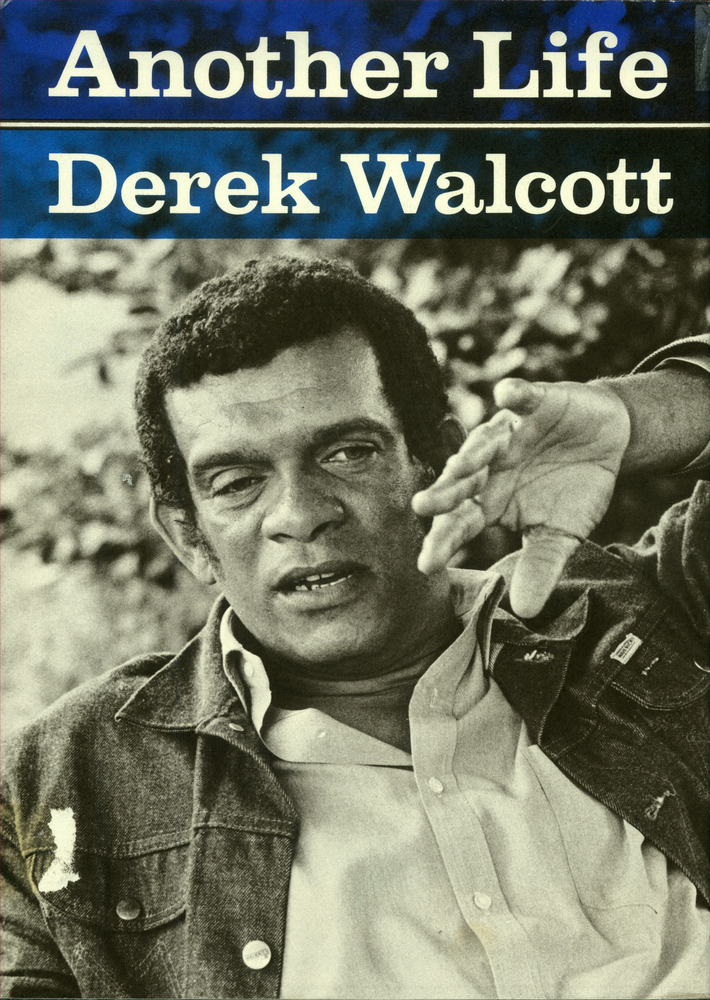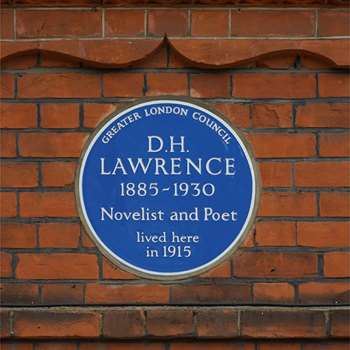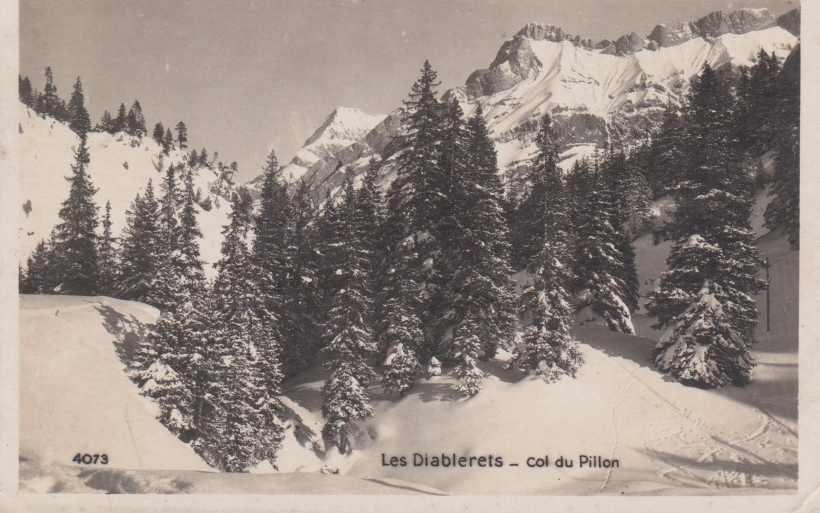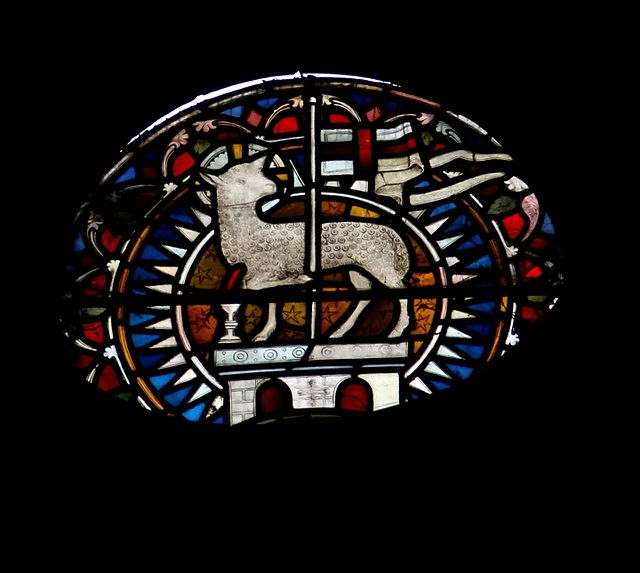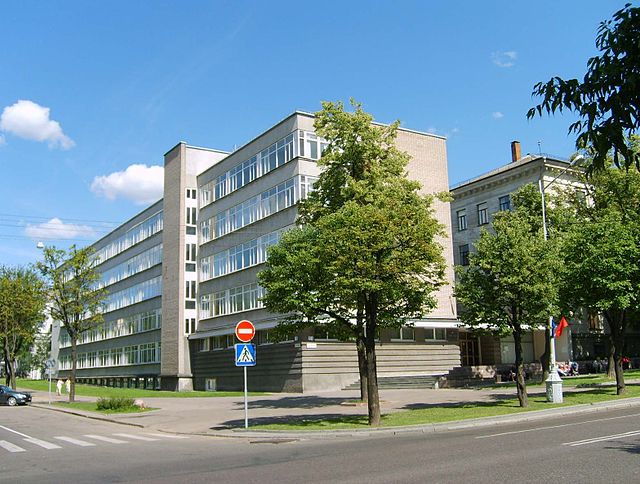Bernard Richards – Emeritus Fellow of Brasenose College, Oxford, who taught English at the College between 1972 and 1996 – interviewed St Lucian poet Derek Walcott in 1992. This interview reveals – more strongly than anything else I have read about or by Walcott – the strength of Walcott’s religious sense. It is reproduced on my blog by Bernard Richards’ kind permission, and is a companion piece to my own memoir of meeting Walcott , and my interview of colleague and poet Jaya Savige about Walcott, soon after the latter’s death.
B.R. Introduction:
In his essay ‘What the Twilight Says’ the Caribbean poet and dramatist Derek Walcott writes ‘something prickles in me when I see the word Ahshanti as the word Warwickshire.’ (Warwick was his father’s name). In the Circle Bar of the Memorial Theatre, overlooking Shakespeare’s Avon and the Warwickshire trees, ‘the Bard’s country’ as it is called in Omeros(chapter 12), an academic, Bernard Richards, spoke to him. It was the day after he had seen his magnificent new play The Odyssey(1992) at The Other Place. Walcott’s other work includes Collected Poems: 1948-1984(1986), The Arkansas Testament(1987) and Omeros(1990).
——————————————————–
B.R. We’d better begin by recalling those lines in Another Lifeabout ‘academics crouched like rats/ listening to tambourines/ jackals and rodents feathering their holes / … sea-lice, sea-parasites on the ancestral sea-wrack, / whose god is history.’ I think what I’d like to talk about in broad terms is the problem, which many people have written about [there is Owen Chadwick’s The Seculatization of the European Mind in the Nineteenth Century (1975) for instance], of desacramentalization since the nineteenth century: how do we manage the inheritance of the past, that inheritance which came from the sacramental and religious world, in an age of scepticism. You yourself in your poetry have written about loss of belief :
_______________________________________________
Through the swift year
the canvases multiply,
brown-bottomed tumbling cherubim,
broad-bladed breadfruit leaves
surround his oval virgin
under ther ringing sky,
the primal vegetation
the mute clangour of lilies,
every brushstroke a prayer
to Giotto, to Masaccio,
his primitive, companionable saints.
Never such faith again, never such innocence !
(Another Life(1973) chapter 9)
________________________________________________
Most of us have experienced loss of some kind. The problem of the European inheritance is exacerbated, I suppose, outside Europe, because one is suffering from alienation, difference ¬that sort of thing. I wonder how you get over these problems, or whether in the dark watches of the night they still worry and haunt you.
D.W. Without sounding like I’m trying to plug The Odyssey, the play immediately relates to that kind of question because the Lares and Penates and household gods in my part of the world still survive, though not necessarily in a direct way, in a sacramental, votive way; even domestic objects are sacred.
————————————————–
was he the only fisherman left in the world
using the old ways, who believed his work was prayer,
who caught only enough, since the sea had to live?
(Omeros, chapter 60)
———————————————————
It is a world in which The Odysseyexists, and my play comes out of that world. You are talking about a crux, a cross roads, and a pivotal point which has to do with both poetry and belief and sacrament and devotion and awe and stuff like that, and it is a principle of poetry and has always been a principle of poetry. If that fades what happens to the power of poetry and the function of poetry ? Maybe we are talking from a rationalist sceptical point of view, which is the twentieth-century view, because it is the only point of view we have left, which is a pity. I feel almost like a Reformation person, almost like a protestant, emerging from a cosmology, questioning that cosmology not in the tragic sense of ‘Why am I being punished ?’ because of some offense. Odysseus does not know why he is being punished. The personification of the sea is an actuality giving him a hard time. In relation to sacramentalism and the question of belief and feeling and so on I feel that the final horrible thing that has happened to western civilization in the twentieth century is the holocaust. The redemption of the holocaust is main challenge. Unless it isredeemed whatever technology does in terms of rockets and faxes will have failed, because something radical and absolutely sacramental has gone out of it. The holocuast had no deity behind it. Every other enormity of genocide or conquest has always had the empire, the conqueror or the tyrant believing that he is bringing the enemy of God to book, that he is the scourge of God. In the holocaust the God was science and if the ultimate good was making lampshades out of human skin and checking to see how the human being can endure ice or whatever, then it stands radically indicted. These experiments were done by men who are looking behind glass at victims who were considered to be simply scientific experimental objects. And that to me is the most horrific point of history in my time. If you forget it then you’ve had it.
B.R. You write in Omeros[chapter 40] about ‘the scraping cellos in concentration camps,/ with art next door to the ovens …’
D.W. Exactly
B.R.’… the fluting veil of smoke/ soaring with Schubert.’ Has that contaminated art for good ? Can that be redeemed ?
D.W. I think it doesn’t mean that the centre is corrupt. In other words what happened in Auschwitz is a blot which everyone shares, but there is a shift of belief from one geographic area to another part of the world. Poetry flourishes and survives in those areas where there is sacramental belief and if the most barbarous act in the history of civilization happened in the West then it may be that the spirit of poetry can be as dead there as the victims of the holocaust. Certain writers have talked about the sacramental life, and the immediate sacramental thing is human life. And if human life is regarded as simply scientific object that deserves experiment for the purposes of science then you can’t create anything out of that which is in any way beautiful or in any way sacramental or votive. I have gone on about the holocaust, but it is a crucial area in terms of belief.
There are areas where belief, not to pump the Third World up, survives, and there are certain areas where these things remain sacramental, where human life is sacramental. Everybody now is on a bit ecology kick, save the forests and so on, you know. People seem to be now more interested in saving the forests than the starvation problem.
This is a profound question and a profound concern to any poet particularly, because the function of poetry has always been to celebrate the earth and to celebrate God.
B.R. I agree with what you say about Homer. As I see it in the old days poetry did have built into it some picture that there might be a negative side: in other words that the dignity of man or the holiness could be undermined. It seems to me that with a lot of modern poets the undermining of that dignity, the undermining of that holiness, now takes the forefront, so that the traditional and beautiful poetry might be there, and modern poets with skill could go on writing like Shakespeare, let’s say, or Spenser or Marlowe, but it might end up as pastiche. This means that they have to protect themselves by having a preemptive awareness of decay and decline, which makes a lot of modern poetry very sad doesn’t it.
D.W. Well it makes it feel very besieged, that’s for sure. I don’t want to sound that way, and I knew I’d hear myself saying, ‘I don’t want to sound that way,’ but I’m going to sound that way, but I am sure there is a lot of truth in what Robert Graves contended that you cannot… I’ve forgotten the phrase, it’s something about horses….
B.R. ‘Only in a world where there are cranes and horses can poetry survive.’
D.W. Right. The cranes refer to augury. The admiration of horses is just natural. He is not just talking about countryside. We have a sense of siege in Wordsworth, in Hardy, of poetry having to be reclusive and defensive because nature is so threatened. You can have a metropolitan poetry, a poetry of the city, but that can’t survive unless really the elements are there to be in awe of. It is only when Acts of God happen that the helplessness of structures made by man become apparent. With the loss of the sacramental, the terror of nature is something you forget. If you are living in places close to the cranes and horses idea Graves is talking about then that would be so. So you can’t say, ‘Hey what are you going to do ? Take everybody out of Birmingham and put them somewhere else ?’ So the only thing that can be done about it is for the poet to remind us of that truth: that awe is a function of man, is a necessity of man.
B.R. But what if the language doesn’t get through to them ? This is the problem that haunts me.
D.W. Well timidity has entered poetry because timidity is part of scepticism; obviously timidity is part of self debasement and that sort of thing, and doubt and so on, but there are poets who contend and insist and are powerful in that respect. Ted Hughes has always had that driven thing, that emblematic thing, the votive and the frightening that is there. It’s there in Lawrence. It’s even there in Larkin, even if it is a subverted kind of poetry. There’s a feeling at the end of ‘Whitsun Weddings’ that there is something beyond that train which is a glorious refreshing thing that happens. In that sense I think in the end it’s restorative.
B.R. There is of course some very beautiful Larkin nature poetry.
D.W. Exactly, yes. Even if it does come out of the city too it’s nature.
B.R. I think Larkin is a good case of what I had in mind where basically the old-fashined poetry doesappear, even some of the old-fashioned phrasing, but usually it’s what we would call marginalised I suppose. It’s on the edge, so that when he goes off into phrases with compounds like the ‘air-thinned blade’ [in ‘Vers de Societé’], that sort of thing…
D.W. That’s almost his invention. He is brilliant at that. The rule used to be that you don’t hyphenate. Coleridge said if you hyphenate then you’re not a good poet. Larkin just became the master of the hyphen.
B.R. That’s usually the signal that he’s modulating into that old mode. What saddens me is that since I was at school there has been a decline in the appreciation and love of Dylan Thomas and that is symptomatic of what we are talking about.
D.W. Well these fads happen, but you read ‘Poem in October’ and you read ‘Fern Hill’ and it’s so obvious that it’s a continuation of the ‘Immortality Ode’. He is someone who was brave enough to say in a pub in London, virtually in his tone of voice, that I make poems to praise God. That’s fine, but this is someone who lives in Wales and who is close to the cranes and horses we were talking about, the ‘heron-priested shore’ the horses coming onto the fields in the morning …..
B.R. ‘whinnying onto the green fields of praise…’
D.W. Exactly. Nature’s priest idea.
B.R. Does living in a country with volcanos, which I haven’t done, change one’s view of nature ?
D.W. There’s no such thing as a dormant volcano, you begin to realise. And living on that island you feel that any part of it might go.
B.R. And earthquakes. Are there earthquakes ?
D.W. Not that many, no. The earthquake is the best example of human terror possible because you can’t float and when that happens you can’t suspend yourself.
B.R. Is that the most frightened you’ve been, in an earthquake ?
D.W. Oh yeah. Any human being I think is most terrified of an earthquake.
B.R. More than say facing someone with a gun or something like that ?
D.W. Well with a gun you either get shot or you have a rational explanation of why you didn’t got shot. The whole idea of the supreme God as a thunderer is the same sort of thing as an earthquake. The power of God is emblematic in the earthquake.
B.R. Can we pursue this question of inheritance a little tiny bit more. You have this very good friend ‘Gregorias’, celebrated in your poems, who becomes a painter, and you yourself are very interested in the fine arts. Is the fine art painting inheritance from Europe, you know, the ‘”lonely light that Samuel Palmer engraved”‘ and Cuyp, Claude and Cézanne and Turner and goodness knows who… is that harder to deal with than the inheritance of words ?
D.W. No actually it’s easier, because they are obvious masters but they are immediately masters of technique. So if you have a blank canvas or a blank piece of watercolour paper you might think of Turner. But you are really learning not by imitating Turner, whereas language is different in that respect: there are so many derivations and connotations of history and so on. Painting is a timeless technique, so Velasquez is a timeless technique, whereas literature is phased sometimes by song, by vocabulary, by history. Any painter in the world can look at strokes by Velasquez and say ‘I’d like to be able to do that’, and feel absolutely no sense that it is a Spanish painting, whereas if you were influenced by say Lorca then you would be going into another dimension, because there’s something to do with the sensibility and the vocabulary that is quite different.
B.R. Are you worried very much about mock-heroic, about the danger of reference to the classical past ? One can slip accidentally into mock heroic.
D.W. You can slip into pastiche. But I think the pastiche lies in metre. For instance I certainly did not want to write in the pentameter ¬though I have. You can’t do the pentameter any more: it’s an impossible metre in our age, because it can’t accommodate prose. We have great prose, great narrative and characteristic prose. The twentieth-century accomodation of the breath lies in the hexameter rather than the pentameter, because the pentameter is so full of martial echoes that you get the mock heroic, whereas in the hexameter you can find two or three caesuras.
B.R. Have you read Clough very much ?
D.W. Yes.
B.R. Because he used the hexameter very well.
D.W. Eliot was an absolutely brilliant technical critic, and I remember looking at the quotations from Clough he produced. Pound also mentioned Clough I think. Given its context of flexibility and the casualness of the line the hexameter is a good form. In Eliot’s verse he tried to move from the conversational to a kind of Websterian terror, which did not quite come across because it’s a tight terror in the Jacobean period. If you are working in the hexameter you have to make sure that you are not stretching the line like elastic, but that it has flexibility and thrust. I’m glad that I do not have the martial echo, the inevitability that because the thing has to be grand it has to have the Shakespearean or Jacobean echo. It’s like Keats finding in Chapman’s metre that there is something much more powerful. Translations that turn The Aeneid or The Odyssey into pentametrical verse just simply become competitions with Shakespeare and they never work out.
B.R. Is it going to be easy to find audiences who are used to and tuned into the idea of listening to poetry for quite a long time and taking it in ?
D.W. Do you mean lyric poetry ?
B.R. No, I really mean the kind of poetry that was produced at the play we were at last night.
D.W. Well first of all I don’t want it to be Poetry with a capital P which is murder. I’d rather it provide a kind of electrical enjoyment, because of the vocabulary obviously. I don’t want to sound pompous or ambitious but you can say in a given context that the verse ought to be true to the character, but that yes there is a frisson, an enjoyment of a phrase that can happen. All poetry takes into account whatever the achievements of prose have been. In the nineteenth century you had great prose writers. You had Conrad, you had Hardy you had whoever else, even Flaubert in translation, and you have to say ‘wait a minute ! poetry does not start as a separate thing.’ The syntactical achievement of people like Conrad is such that you can almost scan it in its own metre.
B.R. As I see it poetry has to have what you’d call an invitation to lateral thinking. I sometimes wonder whether audiences are necessarily used to that, especially if they only watch the kind of films which are being produced now, which are very non language-based.
D.W. That’s a pretty disastrous thing which has happened. But I think it’s based on a concept of acting which is based on the idea of neurosis rather than language. An actor is by concept a nervous person, and the condition of being inarticulate is the equivalent of being nervous. So the theatrical reality is that we are basically inarticulate, and if we are real we must be inarticulate, and that is the death of anything that has any real energy in it. And it’s great for film: it’s a visual medium and you don’t need language in it.
B.R. There’s that Vietnam film called Coming Home (1978) and in the last scene in that there is the cripped soldier Luke Martin [played by Robert John Voigt] who is totally, utterly, inarticulate, and that is supposed to be the greatest sign of authenticity. And that’s sad isn’t it ? It’s depriving people of their inheritance.
D.W. I think if you took that theory absolutely no reason why King Lear shouldn’t be struck absolutely dumb from all that’s gone out of him. Why should a man who has been so tormented and driven come out and speak such magnificent verse ? It’s a contradiction of his condition. But if you took that view you would obliterate all great writing, including OedipusRex. With that amount of suffering he is not supposed to talk.
B.R. Of course Shakesapeare says that dumbness, so to speak, is the sign of great feeling and he knows somewhere that may be so, but he obviously does not keep selling that idea over and over again.
D.W. I don’t think he means dumbness. I think he means those great moments where there is the pressure of the pain. Those moments of monosyllabic passion, like ‘unarm Eros’ where Antony is physically taking off his armour and Eros means strip yourself of love, take your power off. Or inMacbeth: he has no children. These are monosyllabic expressions where the pressure of the pain is so great that the person is not dumb, but there is a concision of monosyllabic phrasing that is not prose: it is a concentration of a poetry that is so dramatic that all he can possibly do is to utter. As opposed to other times when Antony can be eloquent and so forth. Then the pressure comes and the line doesn’t get longer than that. That’s beautiful proportion. It’s not the same thing as a four syllable line of a movie. ‘Er, stick ’em up !’ Same metre, but different ….. you know.
B.R. Right through your work there quite is a strong regret about tourism, which I suppose would pose a kind of internationality. I see that one part of you wants to represent locality, and the other part wants to recognise cosmopolitanism and the ease of travel and access. Given the fact that English has become a world language, in theory you have access to an enormous chunk of the world, provided they can get involved with this lateral thinking. How do you feel about the two audiences, represented by tourism, the medium which is transporting people all round the world, to give them this access ?
D.W. It’s a serious threat to a lot of things. To dignity of identity. In the scale of operations tourism elevates local people only to a certain point ¬like beverage manager.
B.R. What’s a ‘beverage manager’ ?
D.W. Someone in change of ordering drinks.
B.R. A waiter ?
D.W. Well no: someone in charge of beverages. So there’s that. It’s ironic that I write about hotels when I am in one. Hypocritical. In certain islands the racketeering that is going on, in terms of deals being made, is very obscene, pretty terrible. It’s a threat to ecology.
___________________________________________________
One morning the Caribbean was cut up
by seven prime ministers who bought the sea in
bolts ¬
one thousand miles of aquamarine with lace
trimmings,
one million yards of lime-coloured silm,
one mile of violet, leagues of cerulean satin ¬
who sold it at a markup to the conglomerates,
the same conglomerates who had rented the water spouts
for ninety-nine years in exchange for fifty ships,
who retailed it in turn to the ministers
with only bank account, who then resold it
in ads for the Caribbean Economic Community,
till everyone owned a little piece the sea.
‘The Star-Apple Kingdom’
________________________________________________
You can get islands that are completely overrun, some islands almost lost to the idea of tourism. And the people to blame are not tourists but governments.
B.R. Does the money filter down to the ordinary people ?
D.W. Not at all. I forget the proportion. People build hotels, they staff them with local people, but the money doesn’t stay in the country. It is a trickle, it does not really spread. Hotels are places which tend to devour the people they bring. They are monolothic things. There are luxurious places, and right across the street are these shacks.
B.R. You have a line, ‘Irascibilty muse of middle age.’ [Another Lifechapter 18] I get the feeling reading your poetry that it could be a lot more angry than it is, and perhaps you’re preventing it from getting completely out of hand. Would that be true ?
D.W. Well I’m past middle age now, I’m 62.
B.R. Late middle age.
D.W. Yeah, but I don’t want to be benign either. No.
B.R. It breaks out in your poetry sometimes.
D.W. I think irascibility is a sort of poetic element in a way. You are not quite sure about anything in middle age, you know, whether you are forward or backward. I think is comes out of the metropolitan situation. Things are so irritating. Poetry is supposed to be a passé occupation and the fret that is contained in the necessity of being one may come out of irascibility.
B,.R. Have people ever accused you of being things like snobbish or elitist either in print or to your face ?
D.W. Oh yes.
B.R. How do you deal with that ?
D.W. I mean you don’t deal with it. I used to be angry, but now you laugh because first of all poetry is an intellectual thing. It is the highest expression of intellect, because it admits intelligence and imagination at the same time. If the attack is based on, ‘Yes do you feel you are superior,’ yes you are superior in the way that a priest is superior to a layman. You are a vessel containing what the spirit is, and you are not in yourself superior. But your vocation is a superior vocation. There’s no doubt about that. But I don’t consider that makes me superior to my fellow man. But I consider my occupation to be superior to anything that happens here, including the priest’s occupation. So in that sense it may appear to be spiritual vanity, but you can’t have two things: you can’t be spiritually vain and try to be a good poet. Same thing with a priest. The priest is the vessel of God and yes a priest is superior. In certain societies that vatic role is preserved. If that is lost it’s not a matter of vocabulary. In that sense while he is in that occupation he is superior in the sense that God is superior.
B.R. So is the holy thing that one is transmitting and taking care of the language ?
D.W. No, it’s the spirit.
B.R. So the language is more like a tool then, rather than the entity ?
D.W. Right. I don’t care how passé or stupid or pompous it sounds, it’s true of every poet: whatever is said in Wordsworth, whatever is said in Dante, whatever is said even in Swinburne if you want, and Graves, and in Larkin, however oblique it may appear to be: that’s what the poet does, you know.
